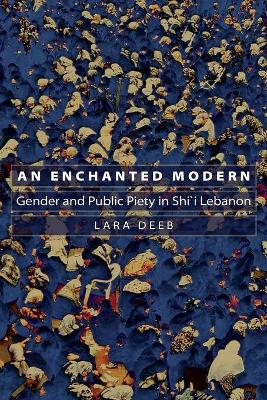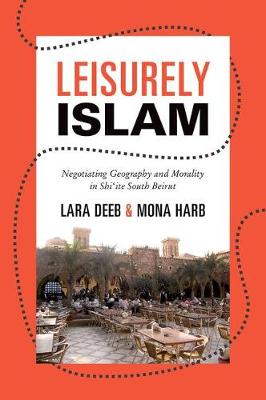Princeton Studies in Muslim Politics
1 primary work • 2 total works
Book 41
Based on two years of ethnographic research in the southern suburbs of Beirut, An Enchanted Modern demonstrates that Islam and modernity are not merely compatible, but actually go hand-in-hand. This eloquent ethnographic portrayal of an Islamic community articulates how an alternative modernity, and specifically an enchanted modernity, may be constructed by Shi'I Muslims who consider themselves simultaneously deeply modern, cosmopolitan, and pious. In this depiction of a Shi'I Muslim community in Beirut, Deeb examines the ways that individual and collective expressions and understandings of piety have been debated, contested, and reformulated. Women take center stage in this process, a result of their visibility both within the community, and in relation to Western ideas that link the status of women to modernity. By emphasizing the ways notions of modernity and piety are lived, debated, and shaped by "everyday Islamists," this book underscores the inseparability of piety and politics in the lives of pious Muslims.
South Beirut has recently become a vibrant leisure destination with a plethora of cafs and restaurants that cater to the young, fashionable, and pious. What effects have these establishments had on the moral norms, spatial practices, and urban experiences of this Lebanese community? From the diverse voices of young Shi'i Muslims searching for places to hang out, to the Hezbollah officials who want this media-savvy generation to be more politically involved, to the religious leaders worried that Lebanese youth are losing their moral compasses, Leisurely Islam provides a sophisticated and original look at leisure in the Lebanese capital. What makes a caf morally appropriate? How do people negotiate morality in relation to different places? And under what circumstances might a pious Muslim go to a caf that serves alcohol? Lara Deeb and Mona Harb highlight tensions and complexities exacerbated by the presence of multiple religious authorities, a fraught sectarian political context, class mobility, and a generation that takes religion for granted but wants to have fun.
The authors elucidate the political, economic, religious, and social changes that have taken place since 2000, and examine leisure's influence on Lebanese sociopolitical and urban situations. Asserting that morality and geography cannot be fully understood in isolation from one another, Leisurely Islam offers a colorful new understanding of the most powerful community in Lebanon today.
The authors elucidate the political, economic, religious, and social changes that have taken place since 2000, and examine leisure's influence on Lebanese sociopolitical and urban situations. Asserting that morality and geography cannot be fully understood in isolation from one another, Leisurely Islam offers a colorful new understanding of the most powerful community in Lebanon today.

